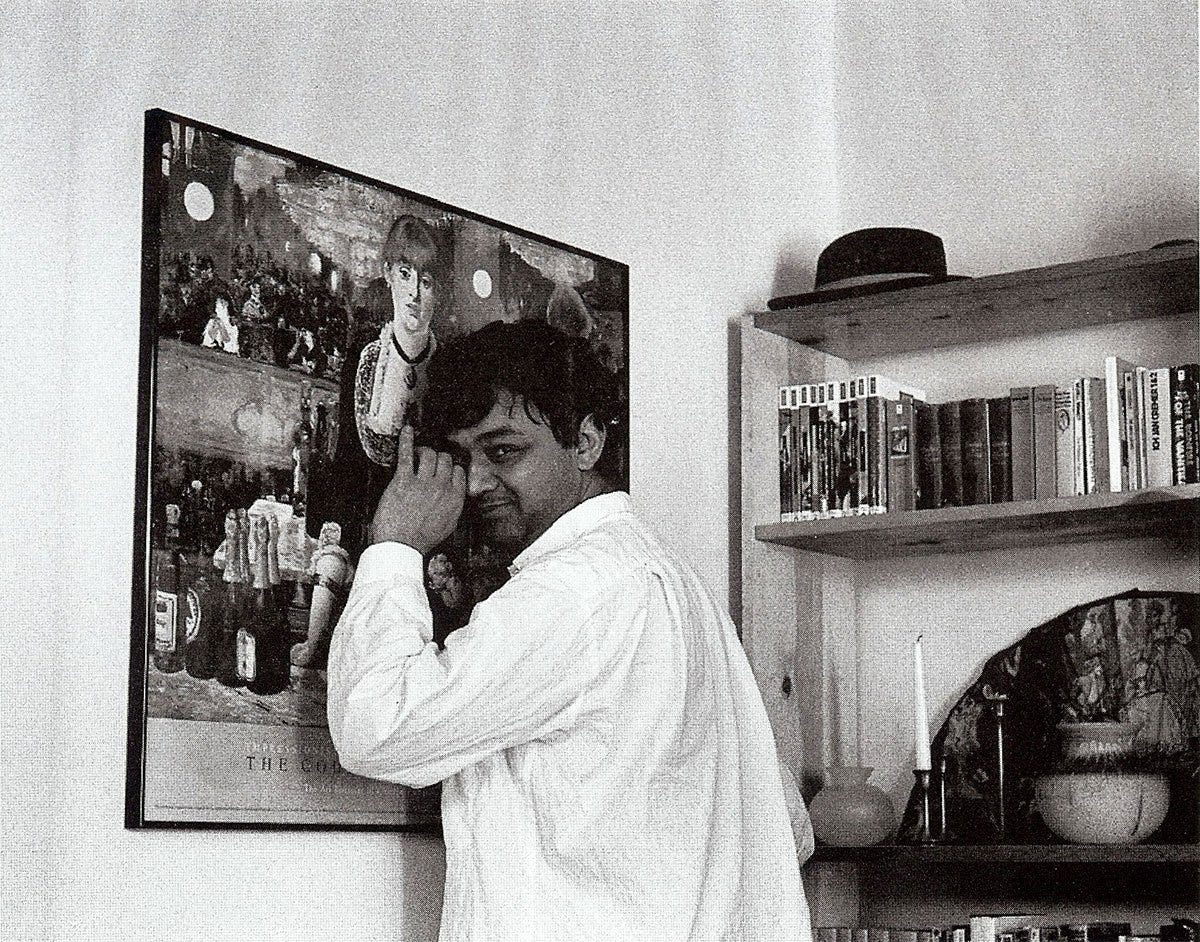Happy Independence Day!
A Kashmiri poet was destined to spend his last days viewing the Brooklyn waterfront, the 'ghat' of his world. An evening in Calcutta reminded me of him.
Agha Shahid Ali left Kashmir (and India) for good in the wake of the growing political turmoil and settled in the West. Those who knew Shahid still reminisce about how he wore his heart on his sleeve and carried his homeland in his heart. I sometimes wonder what it takes to leave someone’s place, one that they have been conditioned to call ‘home’ since childhood. What country do they really belong to? What country owns their body, and what owns their soul? How do we displace people, even in 2023 without turning a hair? How do we always manage to twist the knife in the wounds of the last eight decades, even before allowing them to dry up inside?
Towards the fag end of his life, when Shahid was battling cancer, he shifted to Brooklyn to stay with his youngest sister Sameetah. Amitav Ghosh visited him occasionally and in the early part of this century, wrote a wonderful ode to their friendship. I first encountered this piece in Ghosh’s glorious anthology, “The Imam and the Indian”. It is now part of the CBSE curriculum. It has since deservedly received a wider audience, so much so that, a young girl named Ayana wrote a letter to Ghosh about experiencing Shahid for the first time. She mentioned how she was usually a drifter in the English classes but could not move away one fine afternoon when her classmate began reading the text aloud. This generation doesn’t know the pain of separation from any form of migration against your will. We can only take solace in the written word (and sometimes, the visual format). I have seen people who experienced Partition to be unconditionally kind and their immediate, more privileged generation grow equally vitriolic. We can only wish, may Ayana and her tribe increase.
The most impactful four words in the history of literature come from Shahid’s pen, “Mad heart, be brave.” He knew about his impending death and it is only natural that he decided to open the poem that was his farewell to the world, beautifully titled ‘I Dream I Am At the Ghat of the Only World,’ with an evocation of Begum Akhtar, whose grief-stricken soul he was eternally fascinated by:
A night of ghazals comes to an end. The singer
departs through her chosen mirror, her one diamond
cut on her countless necks. I, as ever, linger.
Amitav Ghosh titled his write-up on his departed friend, “The Ghat of the Only World.”
Happy Independence Day!




